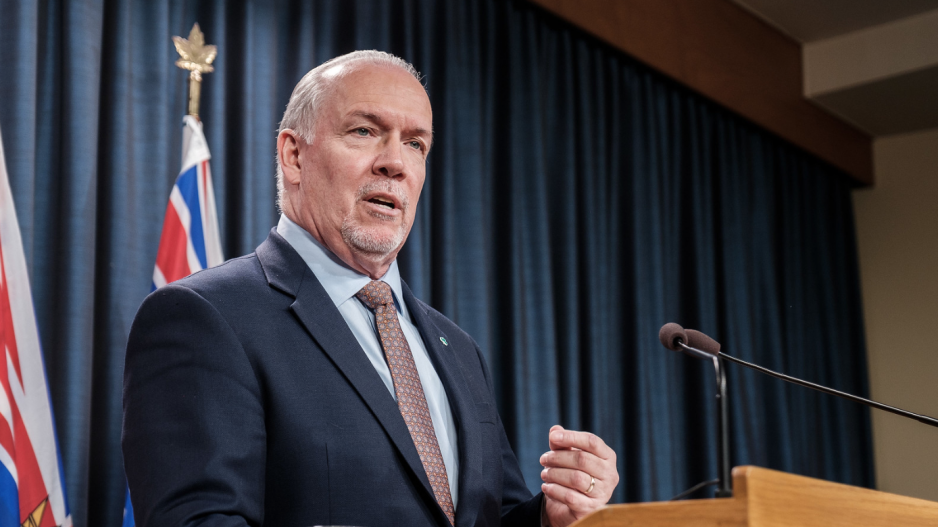The province has extended its state of emergency by another two weeks as it prepares to restart parts of the economy.
B.C. premier John Horgan told media on Wednesday that the province is looking at a phased-in re-opening of B.C.'s economy that will start next week.
It will not be a rapid economic restart.
"We're focusing instead on a slow, methodical, phased-in approach," Horgan said, adding that the province's economic indicators are concerning, but that B.C. can take comfort in the fact that economic indicators globally are similarly poor.
The premier said Canada's westernmost province may be in a better position than its provincial counterparts. B.C.'s construction sector, for example, will not need to re-open as it hasn't been shut down.
"When people see government starting to loosen the restrictions, they assume that that's game on - that's the green light to proceed to regular activity. That is not the case," Horgan said, adding that Provincial Health Officer Dr. Bonnie Henry will table the results of her modelling next week.
"The economic imperative for many in our economy to go to work regardless of their physical circumstances so they can make ends meet is a big challenge," he said. "We need to make sure that we're not putting further burdens on companies and businesses that are coming out of what will be a significant shock to their bottom lines."
In a separate press conference, Henry said there have been 34 new positive tests for the virus across B.C., for a total of 2,087 cases, with 1,305 people having recovered.
For Northern Health, the count stood at 46, up by one from the day before. The number who have discontinued isolation stood at 41, leaving five active cases of which three were in critical care, according to the B.C. Centre for Disease Control.
A total of 109 people have died from COVID-19 in B.C., none of them in Northern Health.
Health Minister Adrian Dix said the four most recent deaths were seniors living in long-term care homes.
The premier did not offer additional insight on how B.C. may begin to normalize certain economic activities, but did say the province has been working on such a plan in collaboration with stakeholders for weeks. Some details of that plan will be made available next week.
He did say that he has not wanted to publish a plan for recovery for fear it will signal to British Columbians that they can revert back to business as usual. There is more work left to do when it comes to B.C.'s containment and management of COVID-19, he said.
"The only way a restart on the retail and personal services side, for example, will be successful, is if people are comfortable that they're safe," he said.
"The hotel sector is going to be critically injured over the next number of months because people will not be coming to British Columbia."
Horgan added that he hopes people will begin to travel throughout B.C. in the not-so-distant future.
As for the health of B.C.'s economic moving forward, Horgan said that while the province's economic indicators are concerning, private sector economists are projecting a rebound of 6% growth in 2021.
This is the third extension of B.C.'s state of emergency. The province has the ability to extend a state of emergency by up to 14 days at a time.
Yesterday, Ottawa and provincial leaders jointly released a set of criteria for re-opening parts of Canada's economy, including having COVID-19 transmission controlled, and sufficient capacity in place to test, trace and control the spread of the virus.
The measures are not mandatory requirements imposed on provinces by Ottawa, but rather any agreed-upon set of principles that will guide how and when provinces re-open their economies.
- with files from Prince George Citizen

.png;w=120;h=80;mode=crop)

